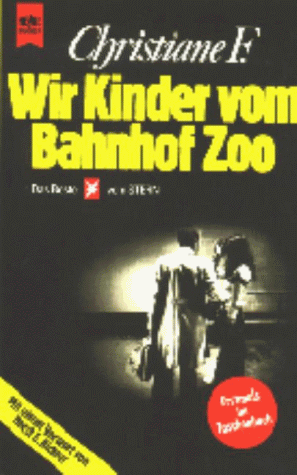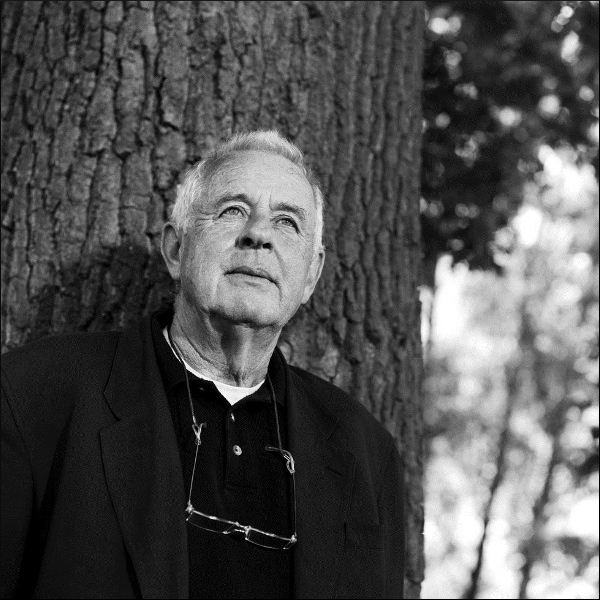
- We Children from Banhof Zoo
- Published by: Stern
- Level: Intermediate
- First Published in: 1978
Wir Kinder vom Bahnhofs Zoo, is a non-fiction book which depicts the lives of drug-addicted children in the Berlin district of Neukölln. The focal point is the Berlin Bahnhof Zoo (Berlin Zoo Station), the main crossroads between West Berlin’s drug scene and prostitution.

Christiane F. – Wir Kinder vom Bahnhofs Zoo (Christiane F. – We Children from Bahnhof Zoo) is a non-fiction book published by Stern magazine in 1978. It depicts the lives of drug-addicted children in the Berlin district of Neukölln. The focal point is the Berlin Bahnhof Zoo (Berlin Zoo Station), the main crossroads between West Berlin’s drug scene and prostitution. Author Horst Rieck followed the trial against a Berlin businessman accused of paying minors for sexual services in return for heroin. Rieck asked one of the witnesses, Christiane Felscherinow, then 15 years old, if she would agree to an interview, and what was meant to be a two-hour conversation became a two-month project, first published in the Stern and then as a standalone book in 1978. It turned into the most popular non-fiction work since World War II, selling more than 3 million copies. It has been translated into more than 15 languages and has since become mandatory reading in German schools.
"Wir Kinder vom Bahnhof Zoo is a raw, honest, and fast-paced book, which shocked a nation when it first appeared in the Stern in 1978."
Christiane’s story begins when she is six years old. She moves into an apartment in a “Hochhaus-Siedlung” (high-rise estate) in Gropiusstadt, a locality in Berlin. Later, she starts “Oberschule” (grammar school), becomes friends with a promiscuous classmate, and attends the Haus der Mitte (The House of the Middle), a youth club organised by the Evangelical Church. There, she smokes hash for the first time and soon begins “kiffen” (smoking weed/hash) on a regular basis. The verb “kiffen” originates from the Arabic word “kief,” often pronounced as “keef” or “kif,” referring to the resin glands of cannabis.

Christiane also starts taking pills like Ephedrin, Valium, and Mandrax. Hoping to fit in with her new friends, she often overdoes her doses, and after a very bad trip, she decides she’s had enough pills for a while: “Ich hatte jetzt erst mal die Schnauze gestrichen voll von Pillen" (For now, I’ve had enough of pills). The phrase “Die Schnauze voll haben” (To have the mouth full) means not being able to or not wanting to do something anymore. If one’s mouth is full, one cannot put anything more inside without choking. Around this time, Christiane starts going to the Sound, then known as “Europe’s most modern discotheque,” where she falls in love with Detlef. Heroin begins making the rounds at the Sound, becoming increasingly popular, and Detlef starts taking it. Although Christiane is initially against it, she ends up trying it after a David Bowie concert, at the age of 13.
As she says, she was bored with smoking hash and taking pills and LSD: “Auf Hasch hatte ich schon lange keinen Bock mehr” (For a long while, I wasn’t in the mood for hash anymore). “Bock haben” (to be in the mood) or “Keinen Bock haben” is a phrasal verb that has been around for more than twenty years. It is taken from Rotwelsch, the secret language of thieves, in which “Bock haben” meant “being hungry.” In the 80s, there was also talk of the “Null-Bock-Generation,” the “Not-in-the-Mood” or “Unmotivated Generation,” referring to a growing population of young people who had no foreseeable future due to social, economic, and career circumstances.
In the end, Wir Kinder vom Bahnhof Zoo is a raw, honest, and fast-paced book, which shocked a nation when it first appeared in the Stern in 1978.
